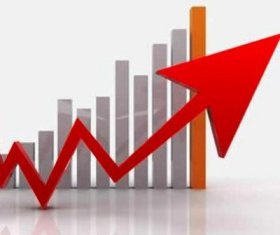 Library Photo
Library Photo
Ghana's annual consumer price inflation rose to 16.9 percent in May from 16.8 percent the previous month partly due to a weakening local currency and utility price hikes, the statistics office said on Wednesday.
The figure reflects fiscal problems facing the West African commodities exporter, which is implementing a three-year aid program with the International Monetary Fund aimed at restoring economic stability.
"The key drivers were mainly price changes in imported household consumables as a result of the continued decline of the cedi," government statistician Philomena Nyarko told a news conference.
The cedi has weakened nearly 22 percent since January to record lows after plunging 31 percent last year, traders said.
The year-on-year non-food inflation rate for May was 23.4 percent compared with 23.2 percent in April, while the food inflation rate stood at 7.3 percent from 7.2 percent the previous month, Nyarko said.
The government plans to rebase its CPI to 2016 from the current 2012 base-year, she said, adding that the new index would be launched in 2017.